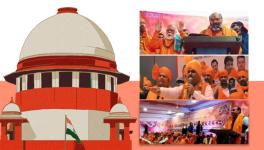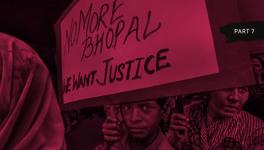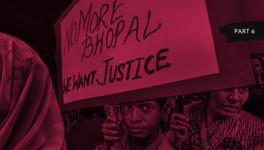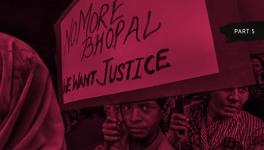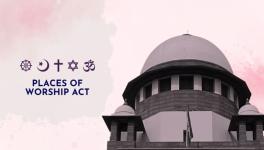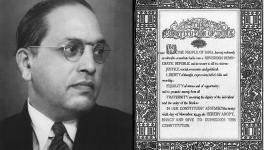Karnataka: BBMP Elections Delayed due to Reservation Conundrum
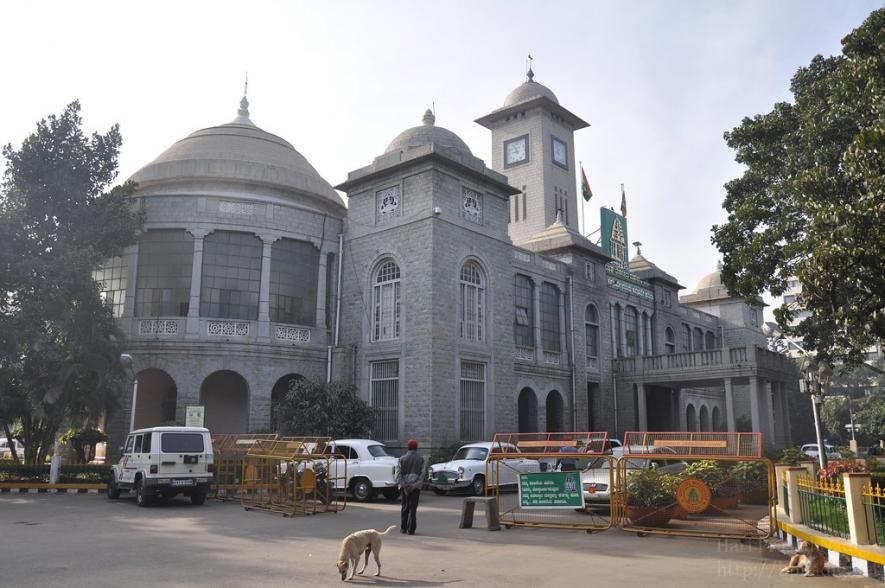
BBMP head office, Bengaluru Image Courtesy: Flickr
BBMP elections in Karnataka have been delayed due to a batch of petitions in the Karnataka High court challenging the manner of determining OBC (Other Backward Classes) and women's reservation in local body elections.
The state election commission had earlier blamed the state government's inability to complete the 'determination of wards' process in a timely manner. In 2022, the state government completed a delimitation exercise, extending the number of wards in BBMP from 198 to 243. The boundaries of the new wards have been challenged in the High court. The department of urban development has determined the reservation of wards for OBC, women, SC (Scheduled Castes) and ST (Scheduled Tribes) candidates. This has also been challenged in the High court in separate petitions.
TIMELINE OF EVENTS
On January 24, 2020, the state election commission filed a writ petition in the High court for the timely conduct of BBMP elections. It alleges that the state government has delayed the exercise of 'determination of wards' under the Karnataka Municipal Corporation Act, 1976. The High court expressed shock at this situation where such an institution has been forced to approach the court to direct the state government to perform its statutory duties. Court also observed that the election process must be completed by September 10, 2020.
The BBMP term expired on September 10, 2020.
On October 1, 2020, Karnataka Municipal Corporations (Third Amendment) Act 2020 was signed into law. This amendment allowed for an increase in the number of BBMP councillors, provided they are at least 225 and not more than 250. The law further provided for a delimitation commission to make recommendations on the manner of delimitation of wards in each corporation.
On October 14, 2020, the state government issued a notification increasing the number of BBMP councillors from 198 to 243
On December 4, 2020, the High court directed the state government to conduct BBMP elections in 198 wards and provided one month to prepare a list of reservations of wards. The reason was that the delimitation commission still needed to submit its recommendations for dividing the area of BBMP into 243 wards. This itself would have taken considerable time. Once this was done, there was the mammoth task of preparing fresh electoral rolls for 243 wards. Along with this, ward-wise reservations also had to be determined.
After the High court order, the state government appealed the decision in the Supreme court and obtained a stay order.
On December 19, 2020, the Bruhat Bengaluru Mahanagara Palike Act 2020 was signed into law. It was deemed that Bengaluru is much bigger than other cities in the state and that the Karnataka Municipal Corporations Act, 1976 is "inadequate in administrative and structural matters to govern Bengaluru as it provides for limited flexibility and is a common legislation catering to nine smaller Municipal Corporations in the State of Karnataka." It also increased the number of wards to a number between 225 and 250 wards. This law also made reservations for OBCs (one-third of total seats) and women (one-third of reserved and non-reserved seats) a statutory requirement.
On March 4, 2021, the supreme court issued a judgement in Vikas Kishanrao Gawali v state of Maharashtra. The court reiterated the triple test for determining OBC reservation in urban and local body elections.
On May 7 2022, In view of the Kishanrao Gawali judgement, the Karnataka state government set up the Justice Bhaktavatsala commission for identifying "political backwardness among backward classes and providing reservation in favour of OBCs in local and urban body elections."
On July 21, 2022, the Bhaktavatsala commission submitted its report to the state government. It concluded that many castes are still socially and politically backward and that providing 1/3rd (33%) of total seats in favour of OBCs (including minorities) is justifiable.
On August 16, 2022, the department of urban development finalised the reservation of wards in the BBMP to women, SC, ST and OBC. Out of 243 wards, 81 are reserved for backward classes, and 120 wards are reserved for women at random.
The randomness of the reservation was challenged in the High court through a batch of petitions.
On September 30, 2022, upon hearing these petitions and arguments on both sides, the Karnataka High court said that the OBC population figure cited by the Bhaktavatsala commission is not based on empirical data. The petitioners argued that the triple test (for the OBC reservation) laid down in the Krishnamurthy judgement (2010) was not followed. The judge also concluded that the triple test criteria had not been met. Judge also agrees with the petitioners that the reservation of wards for women is arbitrary and that the wards coming under the assembly constituencies held by the opposition have the majority of reserved wards for women.
The court quashed the earlier notification (August 16, 2022), determining the reservation of posts. In descending order, the state government was ordered to redo the reservation of posts to women based on the population of women. The court also orders the state election commission to complete the election process by December 30, 2022.
On December 15, 2022, the Supreme court granted three months, i.e. until March 31, 2023, to finalise and submit the report for providing political reservation (based on the commission of enquiry) and electoral representation of OBCs to conduct BBMP elections.
It remains to be seen whether the government will institute a fresh commission to look into the political representation of OBCs since the High court has already deemed that the Bhaktavatsala commission report was not based on empirical data. Due to this reason, the triple test criteria have not been met.
WHAT ARE THE TRIPLE TEST CRITERIA?
The triple test has been laid down in K Krishnamurthy & Ors v Union of India (2010). This judgement held that the reservation of seats for OBCs in urban and local bodies is constitutionally valid as long as three criteria are met -
-
The reservation of seats for SC/ST/OBCs should not breach the upper ceiling of 50% of total seats in the local body.
-
The executive must conduct a rigorous investigation into the pattern of backwardness that acts as a barrier to political participation.
-
To specify the proportion of reservation to guard against overbreadth (inclusion of a large number of castes into the OBC category).
WHAT DOES THE BHAKTAVATSALA COMMISSION REPORT SAY?
This report (seen by NewsClick) does not detail the 'pattern of backwardness that acts as barriers to political participation'. The methodology outlined by the commission was to examine the political representation of OBCs (in local body elections) for four preceding years, i.e. 1996, 2001, 2010 and 2015. All 802 OBC castes are listed, and a tick mark is made next to the castes that have found representation in those elections. The commission has mentioned that it has relied on data provided by the state backward classes commission, urban development department, statistical and planning department and urban local bodies including the BBMP.
The report finds that 646 out of 802 castes do not have any political representation at the level of local self-government. The report concludes that the reservation of 1/3rd (33%) of seats to backward classes is justifiable. The local and urban bodies studied by the Bhaktavatsala commission include gram panchayats, taluk panchayats, zila panchayats, town municipal councils, city municipal corporations, and BBMP.
The OBC population figures mentioned in this report were rejected by the High court in its September 2022 judgement. The High court (in the same order) also mentions that the commission has not conducted any rigorous investigation to identify the pattern of backwardness which acts as a barrier to political participation. As mentioned earlier, the High Court concludes that this commission has not conducted any rigorous investigations.
WHAT DOES THE KISHANRAO GAWALI JUDGEMENT SAY?
The Bhaktavatsala commission was set up due to the judgement passed by the Supreme Court in Vikas Kishanrao Gawali v state of Maharashtra (2021).
In this case, the petitioner argues that the 50% ceiling for reservations had been breached in several local body elections in Maharashtra. Further, he questions whether OBC reservation in local body polls is constitutionally valid. The Maharashtra Zila Parishads and Panchayat Samitis Act, 1961, provided up to 27% reservation for OBCs. The state government had strictly reserved 27% of seats even though the total quantum of reservations exceeded the 50% ceiling. On average, there was a 1-8% ceiling breach.
The court agreed with the petitioner that there has been a breach of the 50% ceiling in several instances. The court ruled that the "1961 Act is an enabling provision and needs to be read down to mean that it may be invoked only upon complying with the triple conditions as specified by the Constitution Bench of this Court, before notifying the seats as reserved for OBC category in the concerned local bodies."
Election results of OBC candidates, subject to the outcome of this case, were 'declared non est in law', meaning that the seats have to be vacated and fresh elections must be conducted on those seats. The court reiterates that per the Krishnamurthy judgement (2010), a dedicated commission must be set up to "conduct a contemporaneous, rigorous, empirical inquiry into the nature and implications of backwardness." The court observed that no such commission has been set up until now in Maharashtra.
The court also states that some states may have to modify their legislation to reduce the quantum of the existing OBC quotas.
HISTORY OF OBC RESERVATION IN LOCAL & URBAN BODY ELECTIONS
Narayana A, who teaches at the school of policy & governance at the Azim Premji University, spoke about the history of the OBC reservation in Karnataka.
Speaking to NewsClick, he says, "in 1992, the 73rd amendment to the Indian constitution was carried out (to provide constitutional status to Panchayats). To comply with that article, the state government in Karnataka comprehensively amended an existing law and passed the Karnataka Panchayat Raj act, 1993. The 73rd amendment had two unique features - OBC and women's reservation. While OBC reservation was an enabling clause, women's reservation was a mandatory clause. Enabling clause means that it is up to the state government to provide reservations. In Karnataka, both were made mandatory. The law said that OBCs must get a reservation of one-third of the total seats; now, they are getting 27% reservations owing to the 50% ceiling on reservations for SC/ST/OBC. And women get a horizontal reservation, i.e. one-third of all seats reserved for SC/ST/OBC and also the non-reserved seats as well. Even today, the reservations for OBCs and women are only at the local level; they don't have it for Assembly and Lok Sabha elections."
Narayana elaborates, "Similarly, in 1993, Parliament passed the 74th constitutional amendment, conferring constitutional status on urban local bodies. In order to comply with this article, two laws were amended - the Karnataka Municipal Corporations Act, 1976 and Karnataka Municipalities Act, 1964. In both these laws, reservation for OBCs and women was mandated."
With regard to the BBMP election, Narayana observes delaying tactics employed by state governments.
"Every time the ruling party wants to delay the BBMP election, they cite fixing of reservation as the excuse."
The BBMP Act 2020 constituted a new corporation with 243 wards. The determination of OBC reservation, women's reservation, SC/ST reservation, ward boundaries, and the litigation into all four have resulted in a two-and-a-half-year delay in the BBMP elections. It also remains to be seen whether the state government will finally set up a commission to conduct a rigorous investigation into the backward classes and their political representation.
A caste census conducted by the Kantharaj commission in 2014 is yet to be accepted by the Bharatiya Janata Party (BJP) government. The Congress, BJP and the Janata Dal (Secular) (JD(S)) rely heavily on dominant communities which fall under the backward classes category. The findings of the caste census are said to be unpalatable to all parties.
Get the latest reports & analysis with people's perspective on Protests, movements & deep analytical videos, discussions of the current affairs in your Telegram app. Subscribe to NewsClick's Telegram channel & get Real-Time updates on stories, as they get published on our website.











